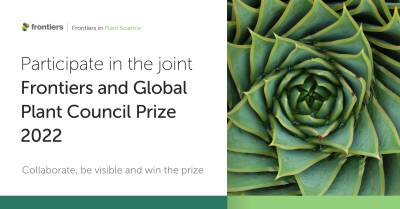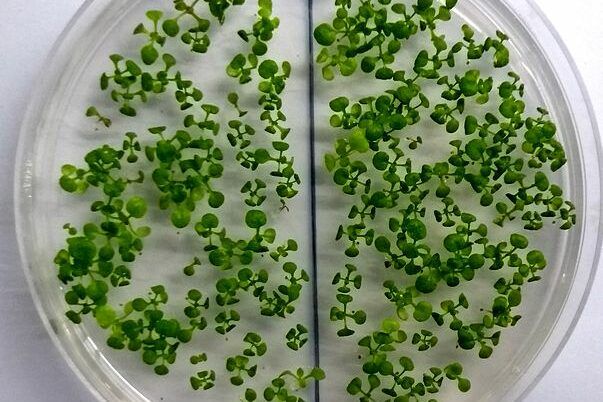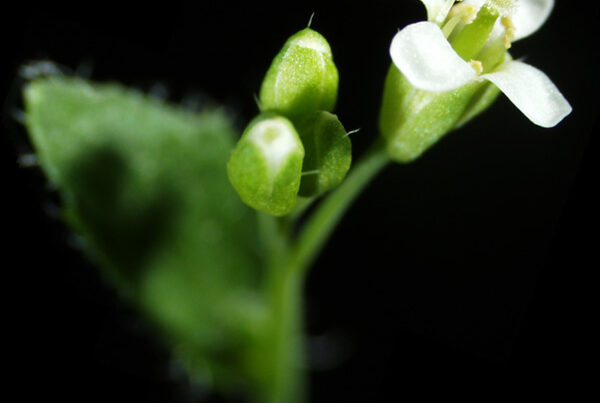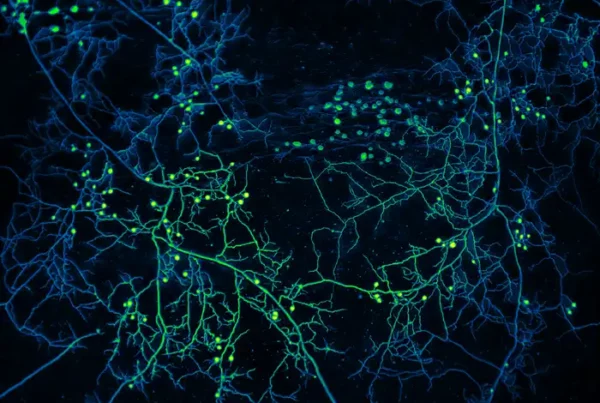The Global Plant Council and Frontiers in Plant Science are delighted to announce the winning Research Topic from the 2021 Global Plant Council Prize: “Systematic Resistance and Defense Priming Against Pathogens”, led by Dr. Nicolás M. Cecchini (CONICET and National University of Córdoba, Argentina) and Dr. Ho Won Jung (Dong-A University, South Korea).
The GPC and Frontiers in Plant Science have partnered in hosting the annual Global Plant Council Prize, which is awarded to an outstanding article collection (“Research Topic”) submitted to the Frontiers journal. This partnership falls under GPC’s Early-Career Researcher International Network (ECRi), helping early-career researchers to network, gain visibility and enhance their impact. Winning editors are awarded full waivers for submissions to the journal (IF 5.7), allowing them to freely share their work on the wide-reaching open-access Frontiers platform.

The winning 2021 collection unites articles exploring “defense priming”, a physiological response that occurs in plants following exposure to a pathogen or other biotic stressors.
The phenomenon is characterized by a boosted state of immunity resulting from the enhanced activation of defense mechanisms, plus an increase in their responsiveness to stimuli. Besides facilitating local immunity, the response also induces plant ‘memory’, enabling long-term systemic resistance and defense against future pathogenic attacks.
As pathogens and pests continue to plague crop yields, it is important to understand the mechanisms underlying priming and the resulting systemic resistance, so that the results can be applied to protecting plants more sustainably and ensuring yield security. This Research Topic is a key central point for achieving this and will provide new perspectives and insights into defense priming and its applications in crop protection.
We would like to congratulate Dr. Nicolás M. Cecchini and his co-editor, Dr. Ho Won Jung, on their successful Research Topic. Dr. Cecchini, also known as Nico, has also kindly agreed to share his experience and journey as a plant scientist.
Congratulations Nico! Can you tell us a bit more about your background and why you chose to pursue plant science as a career? Did you have a role model or mentor that inspired you?
Ever since a young age, living in a small town in the center of Argentina, I was interested in how things work. My mother is an English teacher and a writer; she always stimulated my curiosity and remains my first role model as a scientist and as a human being. My interest in sciences grew during school, and my biology instructor, who was probably my first mentor, helped me to decide to study biology at the National University of Córdoba in Argentina. Since the beginning of college, I was attracted to plants and completed my thesis in plant cytogenetics.
A microbiology postgraduate course inspired my graduate research on the interaction between plants and microorganisms. During my PhD at the National University of Córdoba, I studied the role of proline metabolism on cell death control during plant infections. I was lucky to have many great mentors at each stage of my education, all of whom strengthened my fascination for plant science. In particular, I mention my Plant Physiology teacher, Dr. Claudio Gonzales, my PhD advisor Dr. Malena Alvarez, and my exceptional collaborator Dr. Loreto Holuigue.
After my PhD, I joined Dr. Jean T Greenberg´s lab, a top scientist in plant pathology and an amazing mentor at The University of Chicago, who provided me with a whole new perspective on science, and from whom I still learn today. My postdoctoral work focused on plant systemic defense against pathogens, particularly in key processes, factors, and signals of systemic acquired resistance. This was my first encounter with the priming phenomenon, which has since become my main research focus at the National Research Council (CONICET) in Argentina.
Can you tell us more about your current work on defense priming? How is your research contributing to the most pressing areas of agriculture?
Because defense priming does not “consume” a lot of resources, but reasonably maintains energy allocation under recurrent infection and stress conditions, a better understanding of this defense response will be key to developing sustainable and high-yielding agriculture. Our current knowledge about this phenomenon is in many ways understudied, and we should direct our efforts to better understand it; particularly, the mechanisms behind its establishment and maintenance.
I am currently focused on two exciting projects: the study of immune receptors’ location-functions, and chromatin remodelers associated with priming. A deeper understanding of priming-specific factors is an essential topic for future agriculture and food security. Although my research focuses on Arabidopsis, the data generated will hopefully be extrapolated to agronomically-important plants. In Argentina, plant biology and agrosciences are major research areas, so my research could contribute to developing technology to improve the country’s agricultural output.
As an early career researcher, what do you envision achieving in your field?
Tackling plant disease remains an essential future goal for providing sustainable crop yields and high-quality foods. My main goal is to contribute to the understanding of how plants defend themselves against the myriad of pathogens, and how pathogens can overcome these defenses. I hope to help generate strategies to challenge pathogens and ensure food for present and future generations. To achieve this, it is also very important to share this knowledge with students and future researchers, so I expect to continue educating the next plant biologists and supporting free and public higher education in Argentina and Latin America.
Can you share your thoughts about highlighting your research area in an open-access platform like Frontiers in Plant Science?
I strongly believe that everybody should have access to science and, thus, having my research area highlighted in an open-access platform like a Frontiers journal is important and exciting. I hope that further policies and support schemes will be implemented across publishers to help researchers, especially those in the Global South and developing countries where funding is limited, in publishing under the open-access framework.
Any past-time activities that you enjoy after a long day/week of working in the lab?
Biking, trekking, watching movies and having a good beer with my labmates and friends.
Find out more about Nico’s research here https://ciquibic.org.ar/ or on Twitter @nicoscecchini
Frontiers in Plant Science helps researchers from all over the world to share their scientific discoveries. The GPC Prize is one of several solutions that Frontiers offers to help researchers such as Nico publish their work.
We are thrilled to announce that submissions are now open for the 2022 Global Plant Council Prize. We look forward to receiving exciting new Research Topic proposals, three of which will be selected as winners and receive the prize of a full APC waiver for a submission to Frontiers in Plant Science.
Submit a Research Topic proposal here. We kindly ask that submitting editors have at least 4 years of post-doctoral experience.








